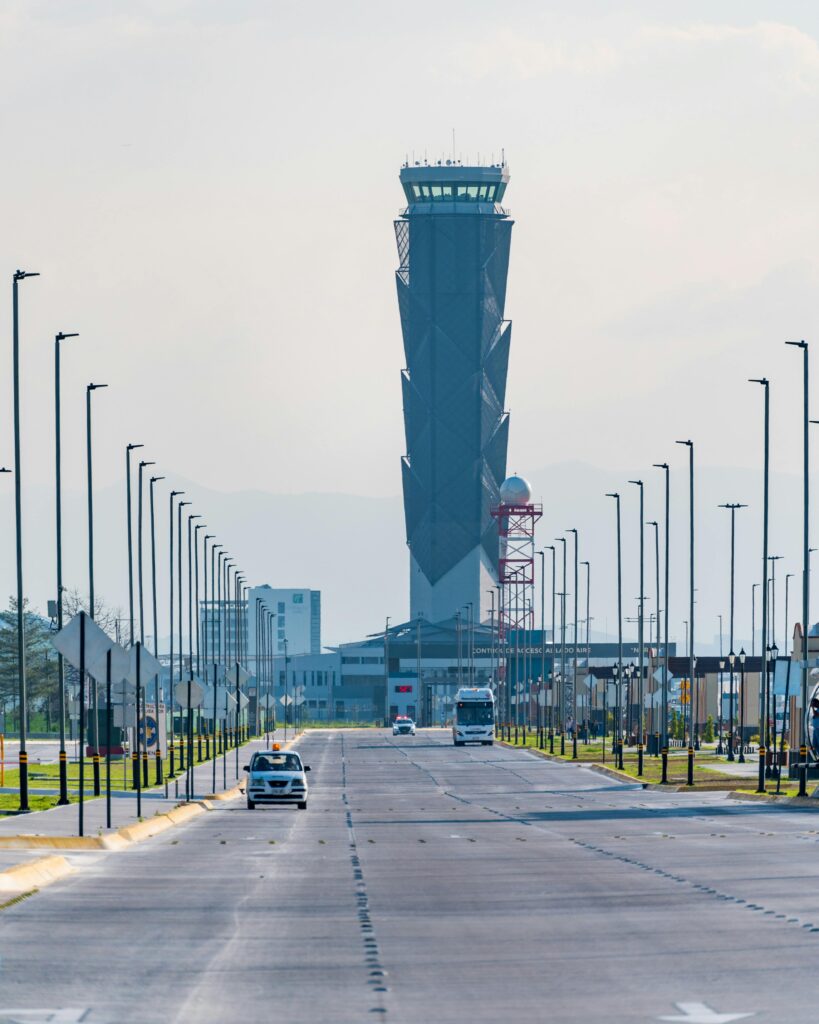Introduction

The aviation industry in Dubai is no stranger to monumental developments, but the recent landmark deal secured by Emirates has been a game-changer in more ways than one. This deal, focused on revolutionizing the aviation fuel supply at Al Maktoum International Airport (DWC), is set to reshape the future of air travel in Dubai. As someone who frequently travels through this bustling hub, I’ve witnessed firsthand how this new agreement is already starting to make waves. Here’s a deep dive into the impact of Emirates’ landmark deal and how it’s changing the aviation fuel supply landscape at Al Maktoum Airport.
The Landmark Deal: A New Era for Aviation Fuel Supply

What the Deal Entails
Emirates, Dubai’s flagship airline, recently entered into a strategic agreement with global energy suppliers to secure a more efficient, sustainable, and cost-effective fuel supply for Al Maktoum International Airport. This deal is part of a broader initiative to enhance the operational efficiency of the airport and support Dubai’s ambitious growth plans in the aviation sector. The agreement includes the introduction of advanced fueling technologies, sustainable aviation fuels (SAFs), and a more streamlined supply chain process, ensuring that Al Maktoum Airport remains at the forefront of global aviation.
The Significance of Al Maktoum Airport
Al Maktoum International Airport, also known as Dubai World Central (DWC), is a key component of Dubai’s vision to become the world’s leading aviation hub. Positioned as the future of aviation in the region, DWC is set to handle a significant portion of Dubai’s air traffic, especially as Dubai International Airport (DXB) continues to reach its capacity limits. The airport is already recognized for its state-of-the-art facilities and strategic location, making it an ideal candidate for such a groundbreaking fuel supply deal.
The Immediate Impact on Aviation Fuel Supply
Efficiency and Reliability
One of the most immediate effects of this deal has been the enhancement of fuel supply efficiency at Al Maktoum Airport. The integration of advanced fueling technologies means that refueling processes are now faster and more reliable, reducing turnaround times for aircraft. For frequent travelers like myself, this translates into fewer delays and a more streamlined travel experience. The reliability of the fuel supply chain has also improved, ensuring that the airport can handle increased traffic without disruptions.
Cost-Effectiveness
The deal has also introduced cost-saving measures that benefit not only the airline but also passengers. By securing long-term agreements with energy suppliers, Emirates has managed to lock in favorable fuel prices, which helps keep operational costs down. This cost efficiency is likely to be passed on to passengers through more competitive airfares, making travel through Al Maktoum Airport more affordable in the long run.
Sustainability Initiatives
A key component of the deal is the commitment to sustainable aviation fuels (SAFs). These fuels, derived from renewable sources, significantly reduce carbon emissions compared to traditional jet fuels. As the aviation industry faces increasing pressure to minimize its environmental impact, the adoption of SAFs at Al Maktoum Airport is a significant step forward. This shift not only helps Emirates meet its sustainability goals but also aligns with global efforts to combat climate change. For environmentally-conscious travelers like myself, this initiative adds an extra layer of appeal to flying with Emirates through DWC.
My Experience Traveling Through Al Maktoum Airport Post-Deal
Noticeable Improvements
On a recent trip passing through Al Maktoum Airport, I noticed several improvements that can be directly attributed to the new fuel supply deal. The first thing that stood out was the reduced waiting time for my flight’s refueling process. In the past, refueling delays were a common occurrence, especially during peak travel times. However, this time, the process was noticeably quicker, allowing for an on-time departure.
Smoother Operations
The overall operations at the airport seemed smoother as well. The streamlined fuel supply chain has reduced the likelihood of delays caused by fuel shortages or logistical issues. This improvement has had a positive ripple effect on other aspects of the airport’s operations, from baggage handling to boarding procedures, making for a more seamless travel experience.
Environmental Consciousness
Another significant aspect that I appreciated was the emphasis on sustainability. Knowing that the aircraft I was boarding was likely using SAFs made me feel more responsible as a traveler. The reduced carbon footprint of my journey added to my satisfaction, as I strive to make environmentally conscious choices in my travels. This move by Emirates and Al Maktoum Airport towards greener aviation practices is not only commendable but also crucial for the future of the industry.
The Broader Implications for Dubai’s Aviation Sector
Positioning Dubai as a Global Leader
This landmark deal positions Dubai—and by extension, Al Maktoum Airport—as a global leader in aviation innovation. The commitment to sustainability, efficiency, and cost-effectiveness sets a new standard for airports and airlines worldwide. As Dubai continues to expand its influence in the global aviation market, deals like this one will be critical in maintaining its competitive edge.
Attracting More Airlines and Passengers
The improvements in fuel supply and operational efficiency are likely to attract more airlines to operate out of Al Maktoum Airport. This, in turn, will draw more passengers, both business and leisure travelers, who are looking for a reliable and sustainable travel experience. As the airport’s capacity grows, we can expect it to become a major hub for international travel, complementing Dubai International Airport.
Boosting Economic Growth
The economic implications of this deal are also significant. By securing a stable and efficient fuel supply, Al Maktoum Airport can support the rapid expansion of Dubai’s aviation sector, which is a major contributor to the city’s economy. The increased traffic and operational efficiency will generate more jobs, stimulate investment, and contribute to the overall economic growth of the region.
Challenges and Future Considerations
Managing Increased Traffic
While the benefits of this deal are clear, one potential challenge is managing the increased traffic that is likely to result from the improved fuel supply and operations. As more airlines and passengers choose Al Maktoum Airport, there will be a need to ensure that the infrastructure can handle the additional load without compromising the quality of service.
Sustaining the Momentum
Another challenge will be sustaining the momentum of these improvements over the long term. The aviation industry is constantly evolving, and maintaining a competitive edge will require continuous innovation and investment. Emirates and its partners will need to remain vigilant in ensuring that the benefits of this deal are not just short-term gains but part of a long-term strategy for growth and sustainability.
Conclusion: A Landmark Deal with Lasting Impact
The landmark deal secured by Emirates for aviation fuel supply at Al Maktoum Airport is more than just a strategic agreement—it’s a transformative development that is reshaping the future of air travel in Dubai. From enhanced efficiency and cost-effectiveness to a strong focus on sustainability, the benefits of this deal are already evident in the improved operations at the airport. As a frequent traveler, I’ve experienced these changes firsthand, and they have significantly enhanced my travel experience.
Dubai’s continued commitment to innovation and sustainability in aviation is setting new standards for the industry, ensuring that the city remains at the forefront of global aviation. Whether you’re a frequent flyer or planning your first trip to Dubai, the changes at Al Maktoum Airport promise a better, greener, and more efficient travel experience.


